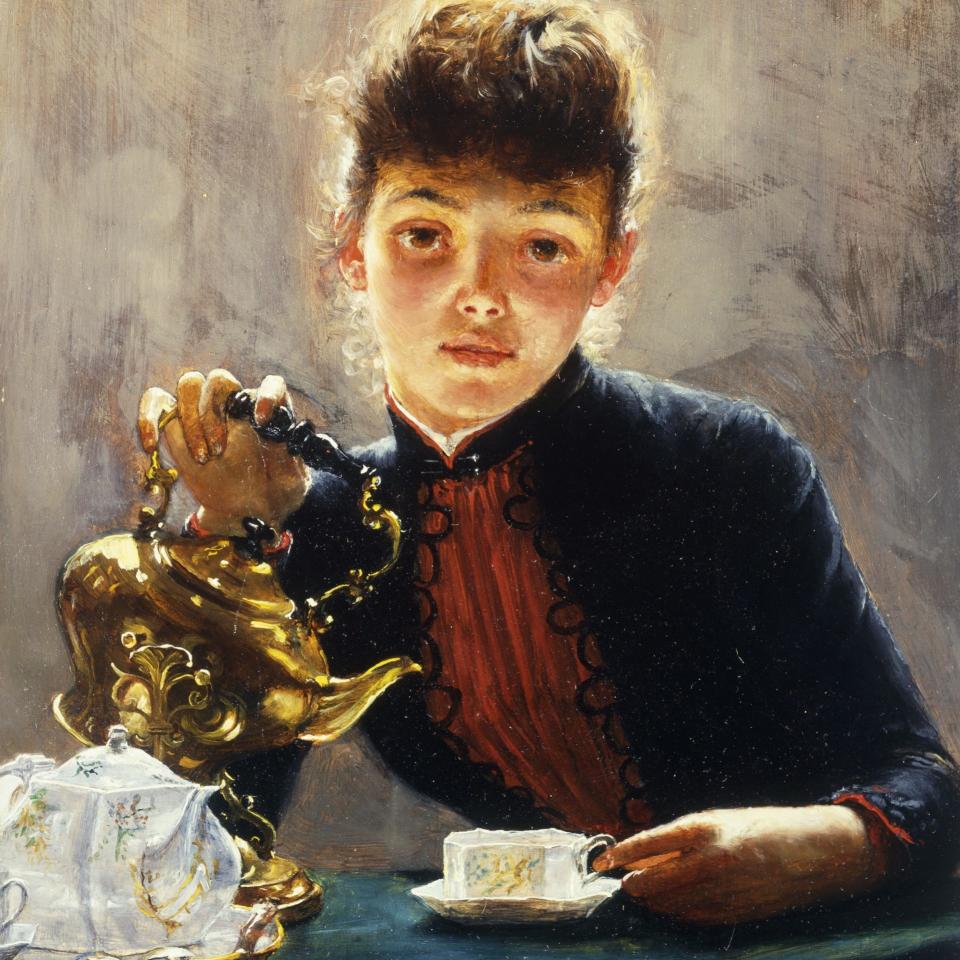Letters: The New Year Honours list has got its priorities wrong again for 2024

SIR – As I predicted, successful actors, musicians, sports stars and political party supporters have predominated among the upper echelons of the King’s New Year Honours. Elsewhere, less well-known members of the public, who have worked selflessly with no thought for their own benefit, will be restricted to lesser awards.
Charles Smith-Jones
Landrake, Cornwall
SIR – When Abi Tierney, the former director-general of HM Passport Office, is made a Companion of the Order of the Bath after the passport fiasco of 2022 (report, December 30), it simply confirms that the honours system is both debased and discredited. Awards should be granted only for conspicuous achievement.
The same goes for Liz Truss’s resignation honours list. After 49 days of economic and financial chaos, she should have been barred from awarding any honours.
It is time that the Government got to grips with a thoroughly rotten system and made it only for demonstrable achievement in the national interest.
Kim Potter
Lambourn, Berkshire
SIR – Liz Truss was prime minister for only 49 days, yet she nominated 14 people for honours (though only 11 were actually approved).
The fact that she was allowed to nominate anyone can only be described as absolutely disgusting.
Andrew Horrocks
Bury, Lancashire
SIR – It would be sensible and generally acceptable if Prime Minister’s Honours were granted only after the PM has been in office for at least a year.
David Riches
London SE19
SIR – Justin Welby, the Archbishop of Canterbury, may well have done a good job at the coronation of King Charles (report, December 30), but he has utterly failed in his main role as leader of the Christian faith in this country. A few pockets of support still exist, but the churches are empty. He has let himself become self-important and focused on politics at the expense of his day job. The honours system is off the rails and needs a rethink.
Mick Ferrie
Mawnan Smith, Cornwall
SIR – Kevin Sinfield has been awarded a CBE for his tireless efforts to raise money for and awareness of motor neurone disease. The Archbishop of Canterbury has been knighted for doing his day job, in the warm. Surely something wrong with the priorities.
Nairn Lawson
Portbury, Somerset
SIR – My wife and I stayed at home throughout lockdown. I thought we would have been prime candidates for the New Year Honours list.
George R Lawn
Bridgham, Norfolk
Doctors who emigrate
SIR – One of the two junior doctors leading the present industrial action within UK hospitals is apparently considering emigrating to Canada (Interview, December 30). As both were trained in British medical schools, they – and any of their colleagues planning to leave the NHS for opportunities abroad – should be instructed to repay the British taxpayer for their medical education.
Most medical students pay about £50,000 for their five-year training, but the full cost is more than £250,000. The UK cannot afford to continue with this unique subsidy.
Malcolm H Wheeler
Emeritus Professor of Surgery
Bonvilston, Vale of Glamorgan
SIR – Your interview with the two leaders of the British Medical Association’s junior doctors committee was depressing. If the dispute had been about conditions of service in the modern NHS, it would have had whole-hearted support from the public and from those of us who worked for the NHS for many years.
However, the campaign involving pickets and posters highlight nothing but pay. It is about money.
The damage this dispute has caused to the medical profession will be slow to recover – if at all.
Dr Robert Walker FRCPE
Great Clifton, Cumbria
SIR – As an NHS GP for 35 years, who as a junior doctor worked up to 120 hours a week, I was delighted to hear that Dr Rob Laurenson, one of the leaders of the junior doctors’ strikes, may leave this country and go to Canada.
I don’t think his attitude – that his pay is more important than his patients’ wellbeing – makes him a doctor I would want looking after me.
Dr Fiona Underhill
Woodford Green, Essex
RNLI worthiness
SIR – I have long been a contributor to RNLI. I like its clarity of mission, and the obvious direct benefit derived by receivers of its services. Now, however, it seems to wish to take a view as to whether its donors are worthy to join in its enterprise (“RNLI turns down donation from Irish fox hunt”, report, December 30).
I very much doubt whether the recipients of its service will care where the funding came from as they await rescue. Thank goodness they are not asked to justify their worthiness before being hauled into the lifeboat.
This is a growing trend that should be strenuously resisted. Unless it is very clear that the donors are acting illegally or immorally, their money should be accepted, and used for the charity’s stated purpose. Until I am sure that the RNLI has no wish to judge me, I shall withhold my contributions.
Andrew Pearse
Guilsborough, Northamptonshire
SIR – I was surprised to read that the RNLI has turned down a generous donation from a legal countryside activity group. It is pleasing to know that it has so much money that it no longer needs donations. I shall accordingly ensure that any I make in future go to charities that need the money and are grateful for it.
Charles Murray
Botesdale, Suffolk
A right royal service
SIR – Our granddaughter left her coat behind after staying over Christmas. I sent it to her in Devizes with Royal Mail second-class (Letters, December 30) on Thursday afternoon, and she received it on Saturday morning.
Robyn Maitland
Sherborne, Dorset
Soft-peddling death
SIR – The language used to describe assisted suicide (Letters, December 30) has changed over the years. The move towards “assistance in dying” and “assisted dying” typifies the tactic whereby a complex or unsettling topic is transformed quietly into a more acceptable euphemism. Will assisted dying soon become “assisted passing”?
It would be a shame for such a complex ethical and societal issue with potential for harm to be reduced to soundbites and euphemisms.
Jane Fleming FRCPI
Ballymacar, Co Wexford
SIR – After 63 years of marriage, my mother died of cancer aged 83. My father, aged 91, died 10 days later though he was in good health, and received no palliative care or medical intervention. He simply stopped eating and faded away. Perhaps those seeking assisted dying should try that instead of going to Zurich.
Geoffrey Cassen
Honiton, Devon
Spears of disappointment
SIR – As a major in the Royal Engineers during the Second World War, my late father was stationed in various locations around Italy. One billet was next to a field of asparagus (Letters, December 28), and the officers’ cook was invited to pluck some spears for the evening meal. This was eagerly anticipated by the men as a change from their usual dull army diet.
Imagine their horror when the treat was presented. The unwitting chef had removed and discarded the tips, and proudly served a dish of steamed, woody stems to the assembled company.
Carolyn Ruthven
Earlsferry, Fife
SIR – The late, great Sir Michael Parkinson told me that Princess Anne once came to dinner with him and his wife. Over pre-dinner drinks, she mentioned how funny she thought little bowls of water next to your place with slices of lemon floating in them were. Lady Mary excused herself to prepare the first course. When Sir Michael looked out the window the next morning, he saw little slices of lemon in the grass below.
Dame Esther Rantzen
Lyndhurst, Hampshire
SIR – In my opinion, asparagus should be picked up by the fingers only when it is being used as soldiers in a soft-boiled egg.
Dave Alsop
Churchdown, Gloucestershire
The lost art of making a pot of loose-leaf tea

SIR – I must agree with James May (report, December 28) that coffee culture is making the good old British “cuppa” appear unfashionable. However, I do feel that a certain amount of laziness is also to blame. Many tea-drinkers today know only how to put a teabag in the cup and pour hot water over it. Gone is the art of making a decent brew using loose-leaf tea and a pot – but then purchasing loose-leaf tea is getting more difficult as fewer places sell it now.
Fortunately, post-Covid, I no longer enjoy the taste of exorbitantly expensive, lukewarm coffee.
Leroy Hough
Wootton, Oxfordshire
SIR – Like Murray Tollemache (Letters, December 29), we had some work done on our house recently. After about 15 minutes, Martin, our electrician, said: “Mrs French, you’re an English teacher, aren’t you?” I nodded. “Well, what letter comes after S?” he asked.
Penny French
Hatch End, Middlesex
SIR – A number of years ago, while moving house, I asked our removal man how he took his tea. He smartly replied: “On the hour, every hour.”
We duly obliged – with added biscuits to avoid any breakages.
Ben Pearson
Lympstone, Devon
What hereditary peers bring to the Lords
SIR – When the life peers were first created in 1958, it immediately gave the prime minister of the day a tool to change the balance of power in Westminster. Prior to this, hereditary peers were there to keep a steadying hand on the Commons. That was their main purpose.
When, in 1999, Sir Tony Blair decided to remove the majority of hereditary peers and undemocratically replace them with a “plastic” peerage of his own making, it tipped the balance hugely in favour of his government.
Thus, in answer to MP Andrew Rosindell’s question (Peterborough, December 30), I believe that Westminster should seriously consider reinstating the hereditaries, who in general at least have a history of service to their country.
John Fagan
Fulmer, Buckinghamshire
Letters to the Editor
We accept letters by email and post. Please include name, address, work and home telephone numbers.
ADDRESS: 111 Buckingham Palace Road, London, SW1W 0DT
EMAIL: [email protected]
FOLLOW: Telegraph Letters on Twitter @LettersDesk
NEWSLETTER: sign up to receive Letters to the Editor here
